Glossary
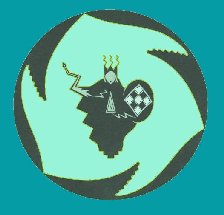
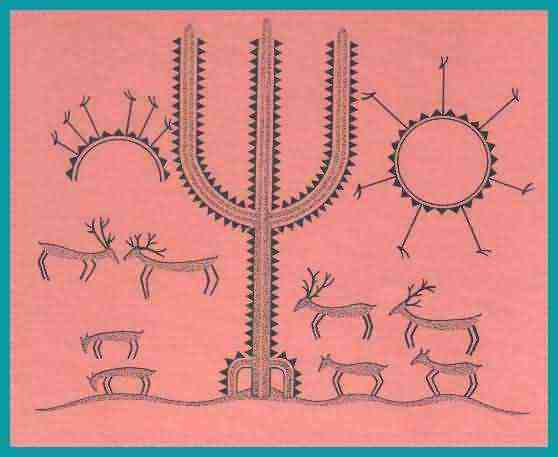
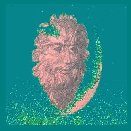
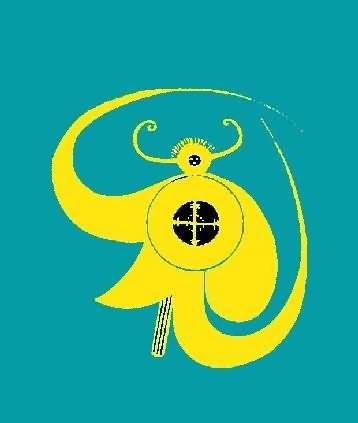
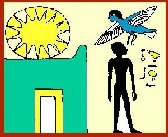
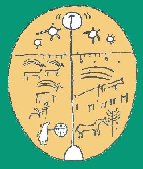
World Types
Pluto in itself is the principle of transformation - which can mean either regeneration or degeneration, depending on whether love or lovelessness is the predominant motive. This means on the good side that people can powerfully focus their desires and make self-regeneration and transfiguration the highest priority in their lives. When they do so, they grow into metamorphic life-styles and learn to become artists in the medium that is life itself, skillfully weaving through the dance of situations and the tapestry of their living interwovenness.
Yet in order to succeed in such a path, anyone incarnating in a Pluto-type world must first overcome in their own natures all hidden violence, self-destructiveness and the paranoid need to control others. Sadly this deeply rooted violence has too often sabotaged humanity's higher aspirations on this planet, as illustrated in its violent history of constant wars, betrayals of ideals and brutally repressive regimes. Indeed the negative use of Pluto's power culminated with the development of the horrible fire of plutonic fission and the atom bomb.
Those who realize the higher side of Pluto and focus their lives on their highest ideals can make substantial and rapid progress, enabling them to leave earth and incarnate on higher types of worlds - the kinds of worlds that are more deeply attuned to our earth than others. The various types of worlds, of which there are 35 in all in the multiverse, are distributed throughout three universes (see Universe Types ) and map onto the ultimate scale of musical frequencies deployed in the Lion Path tapes (see Musical Scale).
The first 32 types of world have a strong resonance with either a fundamental note in this scale or its musical inverse. For example, Pluto-type worlds, such as our earth, resonate to the frequency of the plutonic note in the scale (151.7 cps if the fundamental tone is taken as 128 cps). Plutonic worlds have a strong link with worlds whose note is an octave above it. These are worlds of type 32 (frequency between 300 and 303.4 cps). That is why the greatest inter-incarnational leap for a person walking the Lion Path on a Pluto-type world is a leap to the bardo of a type-32 world, since the octave is the most closely attuned resonant frequency in the scale. There are also other links to world-types whose frequencies form less consonant but still harmonious musical intervals with the plutonic note. For example, a leap to world-type 14 (Venus Sothic), forms the interval of a major tone with the note to which our world resonates. Hence many of those whose natures had begun to evolve in the direction of that higher world-type during their time on earth would naturally gravitate towards the bardo of type-14 world and subsequent reincarnation on it. For a brief description of the types of world one can reach after earth, see Bardo-Jumping .
The Spectrum of Predation v. Symbiosis within Types of Worlds
The world-types where predation is most strongly marked are those of the first 10 (Venus through Pluto), with the greatest possible degree of predation manifesting on plutonic worlds such as our earth. Yet even here, where lovelessness is most prevalent and has deeply infiltrated the environment, it is still cooperation and symbiosis rather than predation that in the final analysis upholds the earth's biosphere. There are four fundamental kinds of cosmo-ecological balances that are essential in sustaining life:
1. Nuclear-proton exchange reaction. Without this extra leverage that helps bind together the neutrons and protons in an atomic nucleus, no other atomic species than hydrogen could exist. Thus carbon, oxygen and nitrogen - all essential for any biological species to exist - would be unable to form.
2. Acid/alkaline (pH)14 balance in body and cellular fluids. There is an exquisitely delicate biochemical equilibrium in all cellular organisms through biochemical arrangements that ensure that neither acidity nor alkalinity strays very far from a critical region on the slightly alkaline side; namely a pH not far from 7.4 and not above 7.8 (whereupon tetany could ensue) or below 7.0, when life-threatening acidosis could start.
3. Oxygen balance. The supply of oxygen essential for mammalian and human life is ensured by a delicate ecological surplus contributed by the (fast-diminishing) rain forests and by the chlorophyll-bearing diatoms of the ocean - now being besieged and increasingly threatened by destructive technologies deployed in the service of short-term greed.
4. The gravitational balance between globes of stellar and planetary matter like the earth and the sun. A delicate balance of mass and distance between the earth and the sun ensures the maintenance of viable temperatures on earth, the single life-bearing planet of our solar system.
The power of Pluto, to which worlds like our earth (type-10) resonate, is the highest cosmic power that can be accessed, and hence misused and perverted, by malicious intent. The powers of higher types of worlds (such as Pan, type-11) cannot be so misused, and these worlds are characterized by an ecological preponderance of mutual help or symbiosis over predation. That is to say, with each higher type of world the proportion of symbiotic life-processes increases and the degree of predation in the ecology decreases. Consequently, since there are now increasingly more biological friends than enemies in the environment, life-threatening diseases and their pathogens also decrease steadily through the world types, and life-spans become longer and more free of disease. Finally, in worlds of type 33, planetary ecology becomes completely symbiotic.